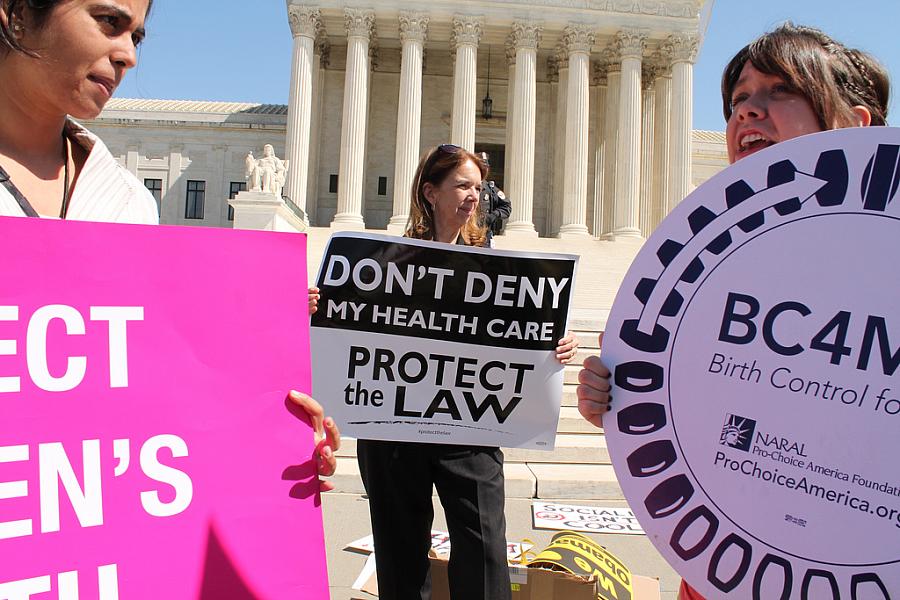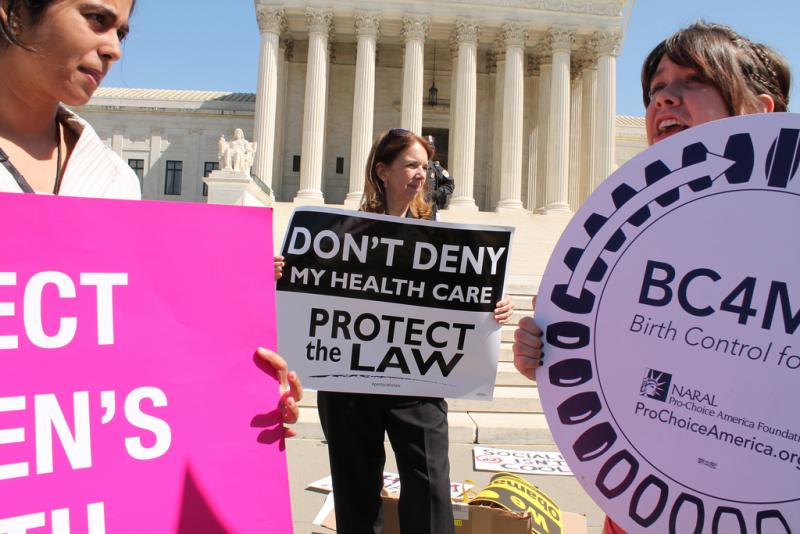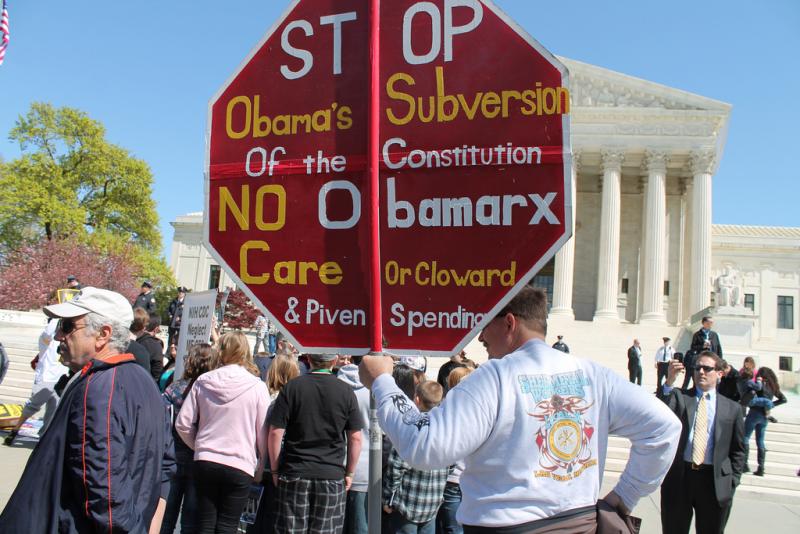Speculation Unbecoming? Media Coverage of Health Reform at the Supreme Court

 It's a waiting game now, and the speculation continues about how the U.S. Supreme Court will eventually rule on the constitutionality of the Affordable Care Act after three momentous days of oral argument.
It's a waiting game now, and the speculation continues about how the U.S. Supreme Court will eventually rule on the constitutionality of the Affordable Care Act after three momentous days of oral argument.
This week, conventional wisdom in the mainstream media held that health reform, and particularly its linchpin, the individual mandate, was on the ropes, dead in the water, an epic fail (pick your metaphor).
There was some Twitter chatter this week that reporters who don't regularly cover the Supreme Court (particularly health reporters) were more likely to speculate based on the oral arguments than those who do, and that may be true. But it was hard to ignore New Yorker court watcher Jeffrey Toobin's "train wreck" characterization of the Obama administration's case.
There's some evidence to suggest that the comments the justices make during oral arguments aren't all that predictive of their eventual decision. Right? Right?
Not necessarily. As Michael Doyle reported for McClatchy Newspapers:
Supreme Court questions, it is true, can mislead. Sometimes, justices may play devil's advocate. They may want help in framing their own answers. The rapid-fire questions themselves might be all but incomprehensible even to those within the legal priesthood
Scholars, though, have traced connections between the justices' queries during oral arguments and the final decisions from the court.
A University of North Carolina political scientist and her colleagues, for instance, examined 8 million words spoken by justices over 30 years to conclude last year that "when the justices focus more unpleasant language toward one attorney, the side he represents is more likely to lose."
in 2004, future Chief Justice John Roberts, then a Supreme Court attorney, noticed that justices ask more questions of the side that ultimately loses in 86 percent of cases. Though he'd tested his theory on only 28 cases-and no one knew whether its sensational success rate would hold up-there was now ample evidence that oral arguments do, in fact, offer very useful data for predicting the outcome of a Supreme Court case.
Drawing on this insight, many political scientists now incorporate language analysis of the arguments into their models. One method is to simply tally up the words spoken to each attorney, consistent with the approach Chief Justice Roberts pioneered. The other method goes slightly deeper, analyzing the emotional quality of the language that the justices use: The more "unpleasant" words a lawyer hears compared with his opponent, the less likely he is to win.
That wasn't the kind of evidence I expected to see. It's a good reminder, as the political spinning on both sides gets underway in earnest, to avoid speculation, be wary of assumptions and rely on the evidence - in this case, a historic Supreme Court decision that won't be made public until June.
Photo credits: top and right, Elvert Barnes via Flickr

